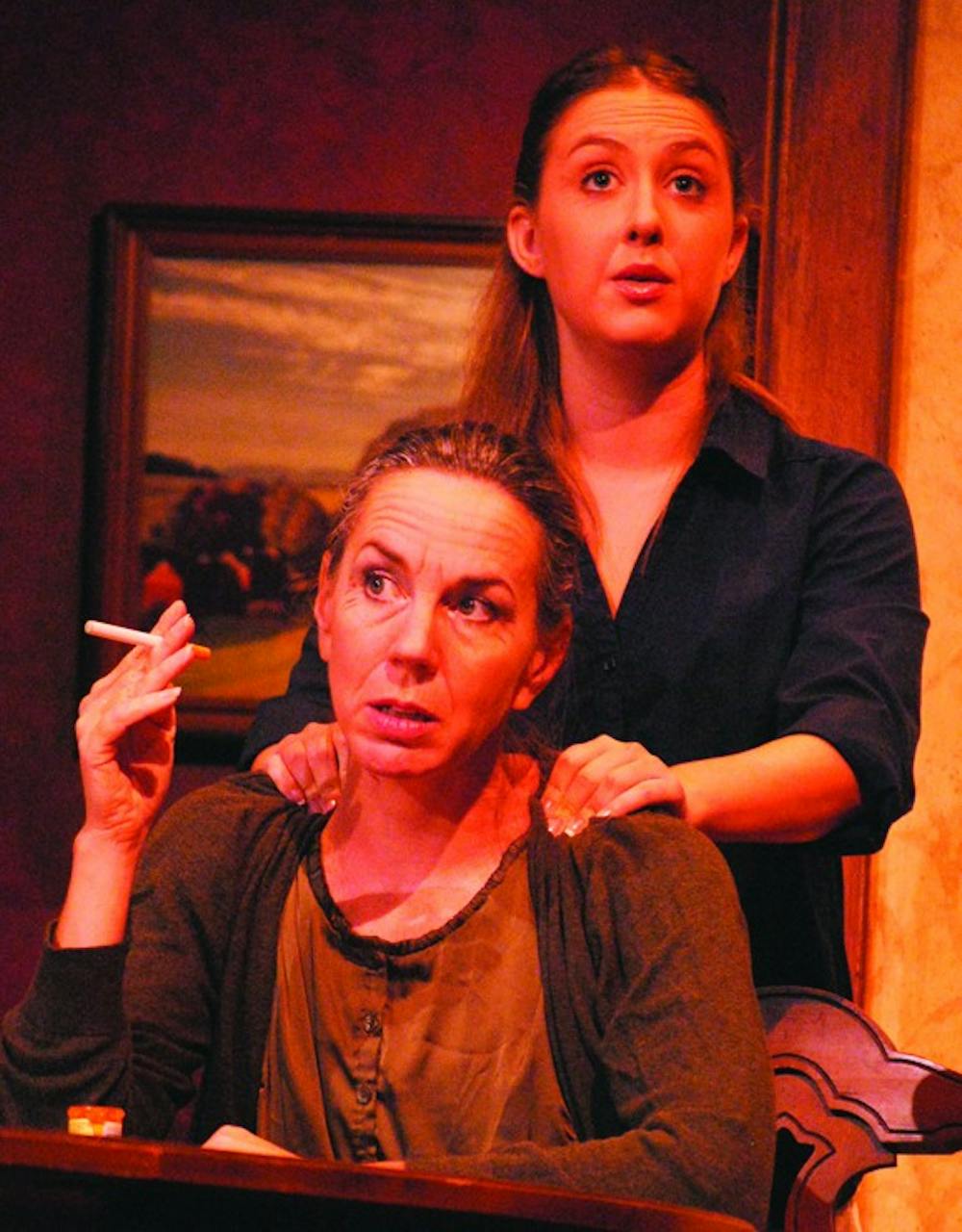A woman pulls out a bottle from her pocket and shakes it at another woman. The two women go flying from their chairs, the first woman chasing the second woman across the dining room and into the living room as everyone else is jumping out of their seats and running after them.
This scene is from the Otterbein Theatre Department’s product ion of “August: Osage County,” which premieres Sept. 29. Directed by Otterbein theatre and dance professor Dennis Romer, “August: Osage County” is the story of a missing father, a pill-addicted mother and three sisters with secrets.
The Weston family unexpectedly reunites after the mysterious disappearance of Mr. Weston, but before his disappearance, he hires a Native American girl to stay in their home and take care of it.
Sophomore musical theatre major Corinne Munsch, who plays Karen Weston, said audiences will take “comfort to see that their family is not as messed up as the Westons.”
Unlike Otterbein’s last production, “The Drowsy Chaperone,” where the characters were intentionally over the top, the characters in “August: Osage County” portray a realistic modern family.
“You feel like a part of the family when you watch it,” Munsch said. “You leave the play changed. You can’t help but get invested in the family’s ups and downs.”
Otterbein was one of the first universities granted performance rights to the play. However, the actors said that this rare opportunity doesn’t have them feeling any extra pressure.
Senior musical theatre major Adam Schalter said that he “doesn’t feel any pressure. Everyone is too excited.”
“August: Osage County” features professional actors alongside students and faculty. Munsch said, “The pressure comes from working with professional actors.”
The professional actors are David Combs, Jonathan Putnam and Geoff Nelson, all part of the Actors’ Equity Association.
“The play has wonderful writing. The characters are well-developed,” senior musical theatre major Lauren Friednash said.
The audience can expect the play to have modern characters and realistic stage props, as well as some profanity and raunchy scenes.
“The show is phenomenal,” Schalter said. “It’s an instant American classic. The show speaks to the deteriorating state of family and what a problem it is.”
Munsch believes that anyone can relate to the story. “The play has the ability to speak to people from all walks of life,” she said. “The play doesn’t apologize for what it is.”
Friednash said “August: Osage County” will make people contemplate their own life, and that the type of audience that will have the best experience with this play are “people that want to see something that will challenge them and make them think or reflect on their own family life.”








